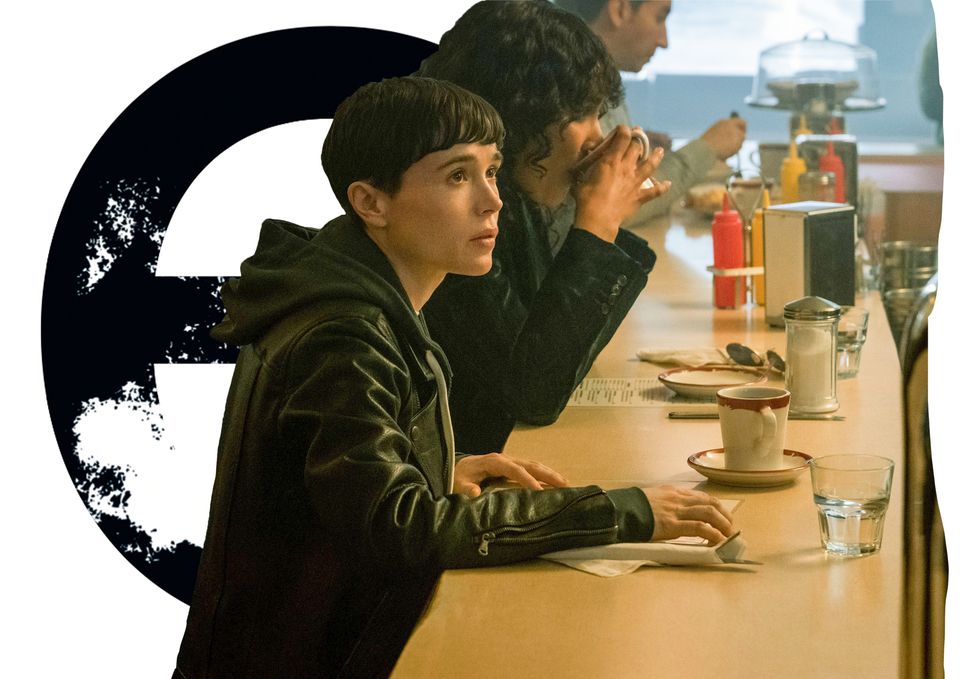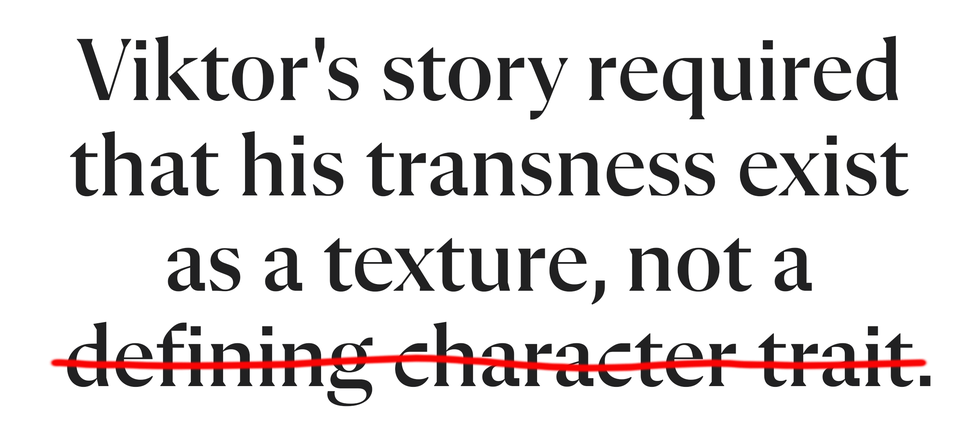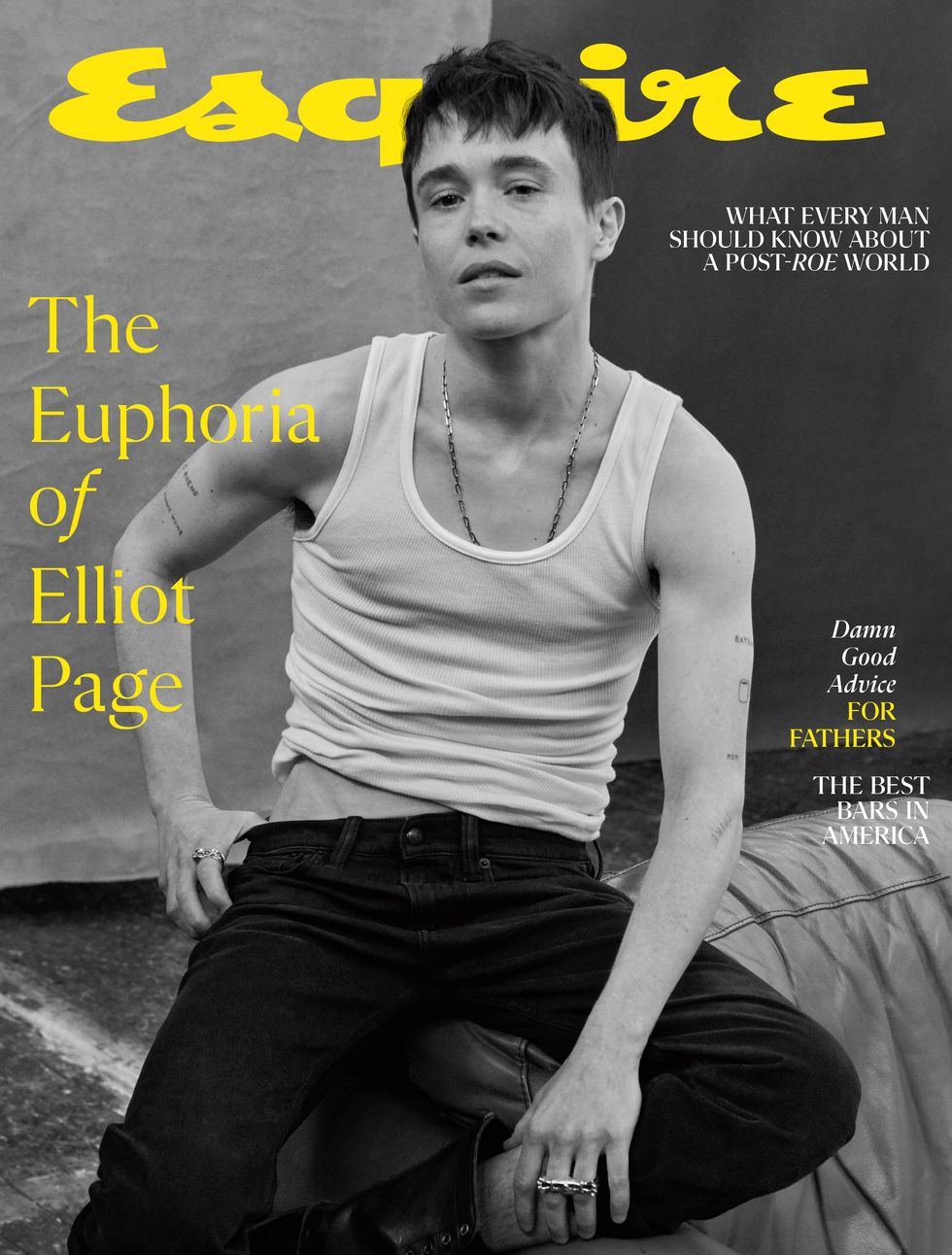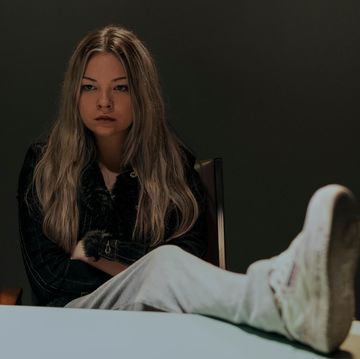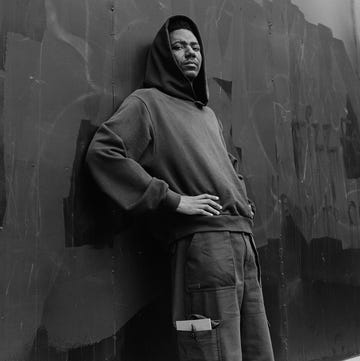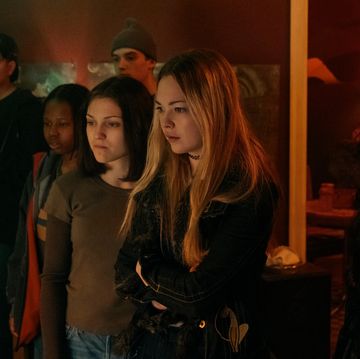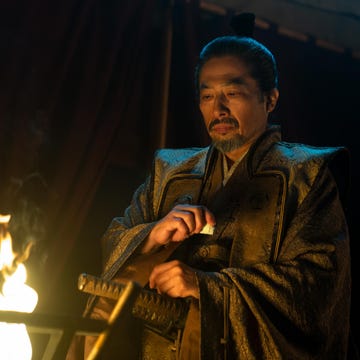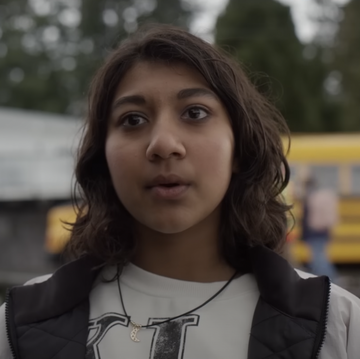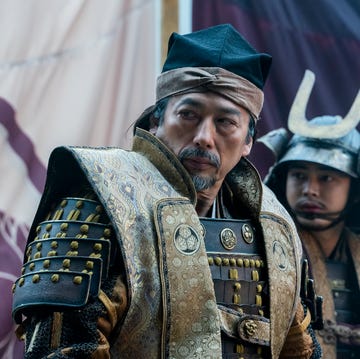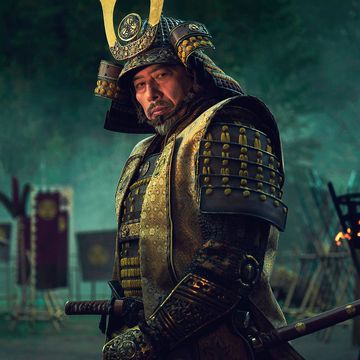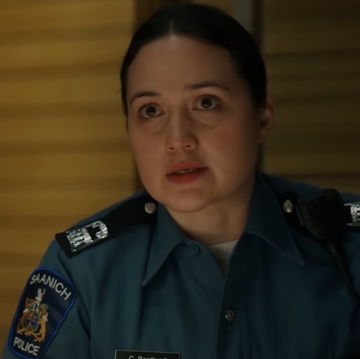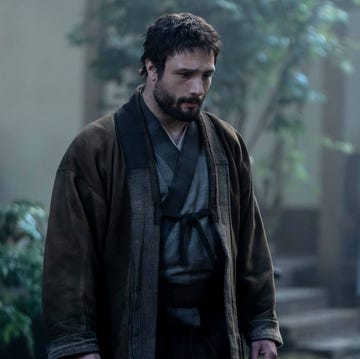Amid rising legislative, rhetorical, and physical violence against trans people by those who insisted we’re destroying the very fabric of civilization, Elliot Page disclosed he is transgender—and, overnight, became the defacto face of transmasculinity the world over. He also confirmed he’d remain in his role on Netflix’s wildly popular superhero series The Umbrella Academy. It was a relief to many fans, who raised an important question: Would he “play cis,” or would his character transition alongside him? As a trans man whose own transition was delayed by erroneous, absent, and harmful representation, I hoped for the latter. According to GLAAD, trans men and boys are remarkably underrepresented on television: There were only fourteen transmasculine characters in the 2021–22 television season across all networks.
I’ve known Elliot since 2018, when we met on the set of Netflix’s Tales of the City, for which I was a writer. Shortly after making his announcement, Elliot introduced me to Steve Blackman, the showrunner of The Umbrella Academy. Steve was passionate about incorporating Elliot’s real-life transition into the show. It was right for the actor as well as the character because it deepened existing themes, Steve told me. The only problem? The scripts were locked. Season 3 was delicately arced out, and they were set to go into production in less than two weeks. The job would be to graft a transition story over the intricate plotting of an ensemble show.
Headaches aside, the upshot was celebratory news. Elliot’s character would become Viktor Hargreeves, making that character the most high-profile transgender man on TV.
Anyway, the time and narrative constraints presented a unique opportunity. Because Elliot was returning to the screen in an established role and with a fully fleshed-out character arc that intersected with every aspect of the show, his story required that his transness exist as a texture, not a defining character trait. The creative obstacles didn’t stop there. The events of Season 3 pick up immediately after Season 2, so Viktor could not have come to this realization about himself between seasons. Instead, his becoming would need to happen within the first episodes, and without the hand-holding usually provided for cisgender audiences. He was, like all trans people, always already himself—whether his siblings on the show, or the viewers watching, knew it or not.
Like life, I mean.
Trans people often know we are trans long before we disclose that information to others. We have goals that don’t revolve around being trans. We have family drama unrelated to our gender identities, strengths and flaws that span the whole of our lives. By necessity, this was an opportunity to show a transition so organic, so fundamental to the character, that it could only work in concert with the existing character arcs, not eclipse them. Elliot and I had a long conversation about when and how Viktor may have come to discover his gender identity, and in what ways he might embody that identity in season 3. Steve and I used Elliot’s insights as a jumping-off point to form and neatly overlay an economical narrative on those existing scenes—one that echoed where Elliot was in his own transition process at the time of shooting. Because Steve had an encyclopedic knowledge of the cis characters on the show, he helped flesh out how the family might react to their brother’s news.
The result of our work is truer than true in many key ways. In this story, being trans is a context, a coming into focus, a sharpening of perspective that will only deepen the connection millions of viewers already have to Viktor and his family. And because of this, the truest truth of all shines through: On The Umbrella Academy, Elliot Page plays a transgender man who, like most trans people I know, isn’t working to destroy the world but to save it.
This article appeared in the SUMMER 2022 issue of Esquire
subscribe
